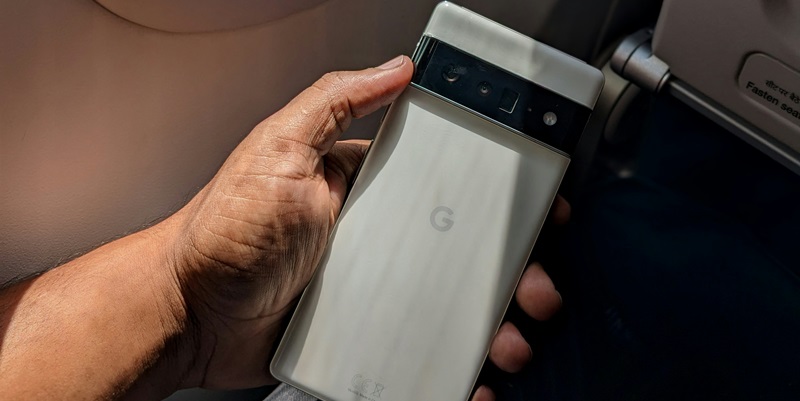In an ever-evolving tech landscape, Google has once again captured attention with the introduction of its latest Pixel smartphones and wearables, designed with advanced AI features. This move reinforces Google’s commitment to integrating artificial intelligence into its hardware to enhance user experience and stay ahead of the competition. The latest releases signify Google’s efforts to push the boundaries of technology, reflecting their strategic maneuver to gain a competitive edge in the high-end market.
Tuesday’s unveiling event at Alphabet’s Mountain View headquarters signified a strategic pivot for Google’s release schedule, aiming to outpace key competitors like Apple. This year’s launch timetable marked a departure from Google’s traditional autumn schedule for flagship Pixel smartphones, clearly indicating a deliberate attempt to preempt Apple’s anticipated new iPhone launch. The new Pixel devices, including the Pixel 9 series and updated wearables, reflect a concentrated effort by Google to solidify its position in the high-end market with AI-centric innovations.
AI-Powered Enhancements in Pixel 9 Series
One of the standout features in the new Pixel 9 series is the integration of AI-driven functionalities, showcasing Google’s ability to tailor its hardware with sophisticated software capabilities. These advancements are designed to offer users more intuitive interactions and practical benefits, thereby enhancing convenience and usability. For instance, an innovative Pixel-exclusive feature now enables users to search for information stored within their screenshots, underscoring Google’s commitment to elevating user experience through technological ingenuity.
Furthermore, the new Pixel smartphones are equipped with Google’s chatbot, Gemini, which can be summoned over any application in real time. The integration of Gemini offers real-time answers to questions and generates content dynamically, making the user interaction more seamless and engaging. Embedded directly into the device’s operating system and functions, these AI enhancements form a critical component of Google’s strategy to stay ahead in the competitive tech market. This proactive approach ensures that users have access to the latest AI-powered tools that can adapt and respond to their needs in real time.
Strategic Timing and Market Position
Departing from its usual autumn launch schedule, Google introduced the new Pixel devices ahead of Apple’s expected releases. This proactive move underscores Google’s urgency to showcase its AI innovations before the competition unveils their advancements. The strategic timing is a tactical shift designed to capture market attention early, which can be crucial in maintaining a competitive edge. By aligning its launch schedule to precede Apple’s, Google is signaling its intention to be seen as a leader in AI-driven smartphone technology.
Despite these advancements, Google’s market share in the global smartphone arena remains modest. As of the second quarter of 2024, Google holds under 1% of the global smartphone market, a figure starkly lower than Samsung’s 18.9% and Apple’s 15.8%. Contributing to this is Google’s focus on fewer markets and its concentration on high-end segments. However, Google’s performance is relatively stronger in the United States, where it holds a 4.5% market share, making it the fourth-largest smartphone manufacturer domestically. This indicates Google’s solid standing in the U.S., albeit with significant room for growth internationally.
The Dual Role of Pixel Smartphones
Google’s Pixel line serves a dual purpose within its broader ecosystem, reinforcing its influence in the tech landscape. Firstly, the Pixel smartphones act as showcases for Google’s cutting-edge advancements, setting benchmarks for integrating new technologies. Secondly, the Pixel series supports the Android ecosystem crucial for developers working with major manufacturers like Samsung. By integrating these two aspects, Google sustains its relevance and continues to influence industry trends and standards.
The Pixels’ AI capabilities are not confined to user interaction tools but extend comprehensively to overall hardware enhancements. A significant highlight in this regard is the new Tensor G4 chip included in the Pixel 9 models, illustrating Google’s dedication to delivering superior performance. This custom chip is designed specifically to optimize AI processes, enabling a powerful and seamless user experience. The Tensor G4 stands as a testament to Google’s ambition to lead in both hardware and software domains, ultimately setting new benchmarks for smartphone performance.
Expanding the Ecosystem with AI-Integrated Wearables
Alongside the Pixel smartphones, Google has announced new iterations of its wearables, including the Pixel Watch 3 and Pixel Buds Pro 2. These devices represent Google’s broader strategy to create an interconnected ecosystem powered by AI. The Pixel Watch 3 is equipped with advanced health-tracking features and enhanced connectivity, epitomizing the practical application of AI in everyday life. Similarly, the Pixel Buds Pro 2 come with AI-driven sound enhancements and noise-cancellation features, demonstrating Google’s resolve to offer premium audio experiences.
By embedding AI into these wearables, Google aims to make everyday tasks more efficient and enjoyable for users. These wearables signify a strategic move to solidify Google’s presence in the consumer electronics market further, reflecting its ambition to provide a superior, interconnected user experience. This extension into wearables not only broadens Google’s product portfolio but also deepens its footprint in the AI-driven device ecosystem, creating a holistic approach to user engagement and device usability.
Broader Implications of AI Integration
In the dynamic world of technology, Google has once again turned heads with the launch of its latest Pixel smartphones and wearables, each designed with cutting-edge AI features. This initiative reaffirms Google’s dedication to embedding artificial intelligence into its hardware, aiming to elevate user experience and maintain an edge over competitors. These new releases underscore Google’s ambition to push technological boundaries, reflecting a strategic effort to dominate the high-end market sector.
Tuesday’s unveiling at Alphabet’s Mountain View headquarters marked a strategic shift in Google’s release timeline, signaling an attempt to outpace key rivals like Apple. By moving away from its customary autumn launch window for flagship Pixel devices, Google is clearly aiming to preempt Apple’s anticipated iPhone release. This year’s launch not only deviates in timing but also highlights Google’s intent to solidify its market position with the Pixel 9 series and revamped wearables, all featuring AI-driven enhancements. The strategic timing and innovative features aim to fortify Google’s status in the competitive tech landscape.

